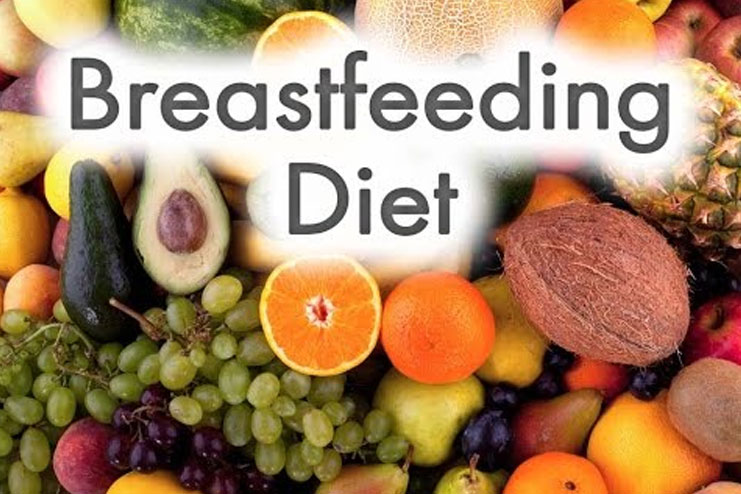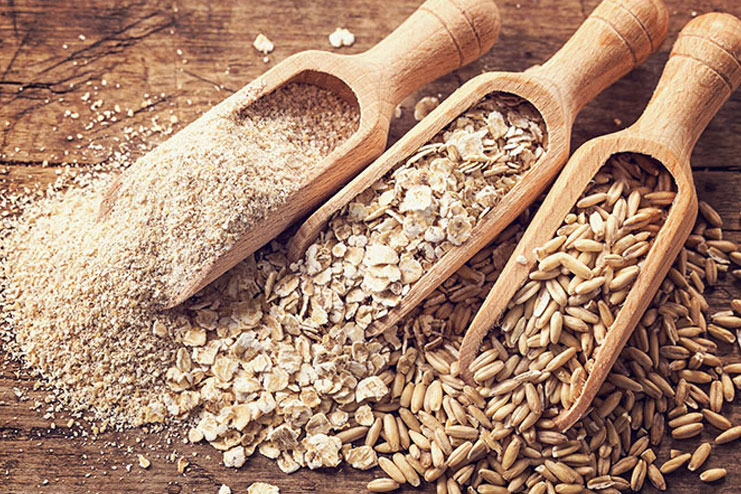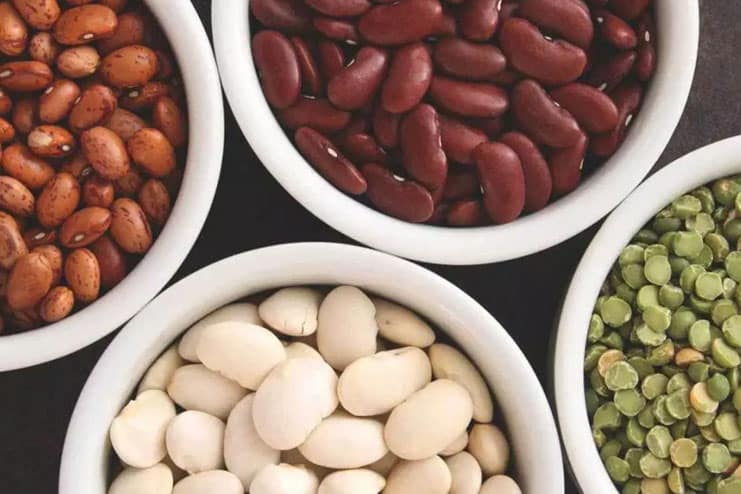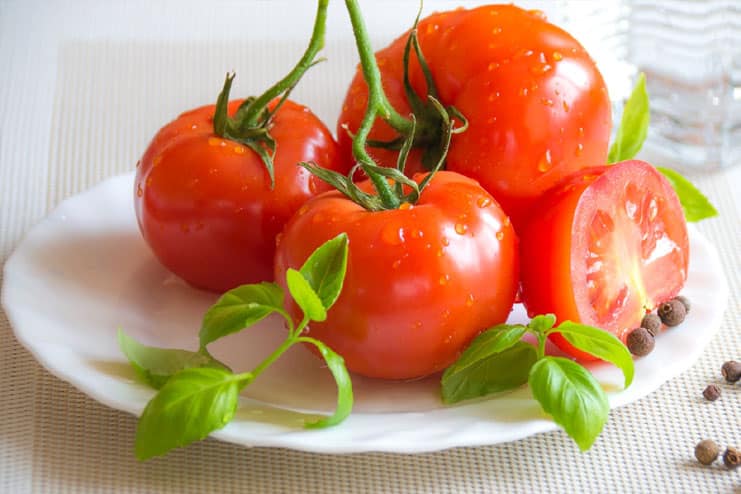The most common confusions for the mothers who breastfeed their babies are what to eat and what not to eat? Are you struggling to find the foods that affect your baby? This article gives you a complete overview of the diet fore the breastfeeding mothers.
A heartful breastfeeding takes your baby through the cycles of healthy development. A track on your diet is very important to make sure that your baby is not affected by the food that you eat.
This article discusses the diet to be followed while breastfeeding. It presents the list of foods to avoid while breastfeeding.
Diet During Breastfeeding

You don’t need any special diet during breastfeeding but make sure to consume nutritionally balanced diet. Eat plenty of fruits and vegetables and grains such as oats brown rice, cereals, whole grains etc. Eat more nutritious food to meet the demands. Healthy eating habits during breastfeeding gives you enough energy for the health of your baby and yourself.
Let us look for the few benefits of eating healthy diet during breastfeeding:
- What you eat while you are breastfeeding determines the energy, protein, nutrients, and vitamin content in your breastmilk.
- Some vitamins and nutrients are required for some of the body processes such as to heal the wounds quickly.
- Lack of nutritious food during breastfeeding may have negative impact on your infant and you.
- Healthy diet is important to meet the increased nutritional demands of your body in response to the production of milk.
- Healthy and nutritious food is essential in order to produce the required amounts of milk for your baby.
- Healthy diet helps you to get the enough amounts of Vitamin D which is depleted during the pregnancy.
- It helps you to reduce the wight that is attained during the pregnancy
Food to Eat While Breastfeeding
Dietary confusion exists while breastfeeding. A single healthy food won’t help you to maintain the good health of your baby. You should eat wide range of healthy foods to nurture your baby. While you are breastfeeding aim to include the following food in your diet.
1. Fruits:
 Fruits are filled with nutrients that help to rejuvenate and nourish your body. Fruits provide the essential vitamins, minerals, and nutrients that are required for the health of your body.
Fruits are filled with nutrients that help to rejuvenate and nourish your body. Fruits provide the essential vitamins, minerals, and nutrients that are required for the health of your body.
It is very easy to accommodate fruits in our diet in many ways. You can have one banana after the breakfast and an apple after the lunch. You can also include the fruits as a part of the mid day meals. Fruits help in repairing the damaged cells of the skin and encourages the growth of the hair.
Here is the list of few fruits that are rich in potassium and vitamin C.
- Cantaloupe
- Bananas
- Mangoes
- Apricots
- Prunes
- Oranges
- Grapefruits
- Papaya
- Apple
2. Vegetables:
 The mothers who breastfeed their babies require 3 cups of vegetables everyday. Those who are combining breastfeeding with formula feeding should require 2.5 cups of vegetables.
The mothers who breastfeed their babies require 3 cups of vegetables everyday. Those who are combining breastfeeding with formula feeding should require 2.5 cups of vegetables.
Consuming the enough amounts of vegetables that are rich in nutrients will hep to fill the body to make enough amounts of milk.
Here are few vegetables that are beneficial during the pregnancy:
- Green leafy vegetables like spinach, asparagus etc.
- Red are orange root vegetables which are used as lactogenic foods in many cultures for several years. The phytoestrogens of these vegetables play a prominent role in improving the breastmilk.
- Carrots, sweet potatoes, tomatoes, and red sweet peppers.
3. Grains:

Whole grains such as brown rice and whole wheat bread are the rich source of vital nutrients. It is required to eat 8 ounces of grains for the breastfeeding mothers and 6 ounces for the formula feeding mothers.
Grains such as quiona, being rich in proteins is one of the essential food to eat while breastfeeding.
It is best choice to consume the whole grain cereals that do not contain any added sugar. Fortified cereals which contain the added nutrients are also good choice to consume during breastfeeding.
4. Seeds:

Seeds are the very beginning form of the any growing plant on the earth. Seeds are the rich source of proteins and the essential minerals such as iron, zinc, calcium, and the healthy fats.
The nutritional content varies from seed to seed. Some of the seeds that benefit the breastfeeding mothers are sunflower seeds, pumpkin seeds, chia seeds, flax seeds and sesame seeds.
5. Diary:
 Studies suggest that Both pregnancy and breastfeeding retards the calcium in bones. Lack of calcium during pregnancy or breastfeeding results in a condition called osteoporosis. Dairy products such as cheese and milk are the excellent source of calcium.
Studies suggest that Both pregnancy and breastfeeding retards the calcium in bones. Lack of calcium during pregnancy or breastfeeding results in a condition called osteoporosis. Dairy products such as cheese and milk are the excellent source of calcium.
Breastfeeding mothers should take 3 cups of dairy products every day.
Here are a few diary products that are rich in vitamin D and Calcium:
- Milk
- Yogurt
- Natural Cheese
6. Beans and Legumes:

Beans and legumes are the good source of vitamins, minerals, proteins, and phytoestrogens. Chickpeas are the most traditional form of lactogenic foods. Eating wide variety of beans and legumes will help for the healthy milk production. They are helpful for the vegetarian mothers as they are the replacement for the meat being a source of vegetarian protein.
7. Nutritional Supplements:
Natural foods are essential to meet the nutrient demands of the body while breastfeeding. Some other women require minerals supplements to cope with the growing demands of the body for the nutrients.
Foods to Avoid while Breastfeeding
Nutrients that pass into the blood are the source for the breastmilk. Breastfeeding mothers can eat all the kinds of foods in permissible amounts and should eat the healthy food. Observing the response of your baby when you eat particular kind of food is the best thing that you can do to put bar on certain foods.
The list of foods to avoid when breastfeeding is short as your body is tailored to control the things that go into the breastmilk. Here are some foods to avoid when breastfeeding a baby:
1. Caffeine:
 It is the most common ingredient to treat the drowsiness. You will feel more awake and less tired when you drink coffee or tea at the night. But it is better to avoid coffee or tea in your daily routine as the babies can not digest the caffeine as the adults digest.
It is the most common ingredient to treat the drowsiness. You will feel more awake and less tired when you drink coffee or tea at the night. But it is better to avoid coffee or tea in your daily routine as the babies can not digest the caffeine as the adults digest.
2. Fish:
 You need not to eliminate the fish from your diet. Be conscious while selecting the type of the fish that you choose to eat. Some fish, being rich in mercury find their way into the milk supply. Select the fish that you eat during your pregnancy and do not introduce any new fish while breastfeeding.
You need not to eliminate the fish from your diet. Be conscious while selecting the type of the fish that you choose to eat. Some fish, being rich in mercury find their way into the milk supply. Select the fish that you eat during your pregnancy and do not introduce any new fish while breastfeeding.
3. Chocolate:
 No need to eliminate chocolate entirely. It is a source of caffeine. Observe for any changes in your baby when you eat chocolate. If your baby becomes fussy after you eat the chocolate avoid or reduce the intake of chocolates.
No need to eliminate chocolate entirely. It is a source of caffeine. Observe for any changes in your baby when you eat chocolate. If your baby becomes fussy after you eat the chocolate avoid or reduce the intake of chocolates.
4. Alcohol:
When you consume the alcohol it directly gets into your breastmilk and adversely affects your baby. Research suggests that breastfed babies who are exposed to drink have impaired motor development and that alcohol may alter the sleep patterns of your baby.
[Also Read: Effects of Alcohol in Teenagers]
5. Citrus:
 Some of the compounds in the citrus fruits may irritate your baby as they have immature gastrointestinal tract. Citrus can cause spitting up, fussiness, and sometimes diaper rashes in your babies. If you have craving for vitamin C take Pineapple or mango instead.
Some of the compounds in the citrus fruits may irritate your baby as they have immature gastrointestinal tract. Citrus can cause spitting up, fussiness, and sometimes diaper rashes in your babies. If you have craving for vitamin C take Pineapple or mango instead.
6. Garlic:
 The smell of the garlic can get into your breastmilk. If your baby is reluctant to nurse see what you ate last. The foods that you eat might get laced with garlic and may offer different smell to your baby while drinking milk that makes the reluctant to drink milk.
The smell of the garlic can get into your breastmilk. If your baby is reluctant to nurse see what you ate last. The foods that you eat might get laced with garlic and may offer different smell to your baby while drinking milk that makes the reluctant to drink milk.
7. Wheat:
 Wheat is the rich source of many nutrients that benefit adults and may not be good for your baby with immature digestive system. Your baby might face some issues with the wheat. They often seem fussy and encounter painful tummy. Eliminate the foods that your baby is not comfortable with and slowly reintroduce them after few months.
Wheat is the rich source of many nutrients that benefit adults and may not be good for your baby with immature digestive system. Your baby might face some issues with the wheat. They often seem fussy and encounter painful tummy. Eliminate the foods that your baby is not comfortable with and slowly reintroduce them after few months.
8. Peanuts:
 If there is any kind of peanut allergy in your family, avoid peanut till you stop feeding your baby. The allergenic compounds in the breastmilk can be transmitted through the breastmilk. Watch for the signs like wheezing, rashes or hives in your baby. All these are the signs of allergic conditions in response to peanut.
If there is any kind of peanut allergy in your family, avoid peanut till you stop feeding your baby. The allergenic compounds in the breastmilk can be transmitted through the breastmilk. Watch for the signs like wheezing, rashes or hives in your baby. All these are the signs of allergic conditions in response to peanut.
9. Tomato:
 Tomatoes can not change the acidity of the milk. Some babies are more sensitive to the proteins that pass into the mother’s milk. Some other babies may encounter gas in their stomach when you have tomatoes in your diet. Avoid the tomato in your diet and look for the positive changes in your baby.
Tomatoes can not change the acidity of the milk. Some babies are more sensitive to the proteins that pass into the mother’s milk. Some other babies may encounter gas in their stomach when you have tomatoes in your diet. Avoid the tomato in your diet and look for the positive changes in your baby.
10. Herbs:
 Some herbs like lemon balm, parsley, spearmint, Black Walnut may decrease the milk supply. It is recommended to avoid these herbs and other remedies that involve these herbs while nursing. Small amounts of these herbs while cooking might not affect your baby. Any kind of foods with large amounts of these herbs like peppermint candies, menthol cough drops, and teas with large amounts of these herbs should be avoided.
Some herbs like lemon balm, parsley, spearmint, Black Walnut may decrease the milk supply. It is recommended to avoid these herbs and other remedies that involve these herbs while nursing. Small amounts of these herbs while cooking might not affect your baby. Any kind of foods with large amounts of these herbs like peppermint candies, menthol cough drops, and teas with large amounts of these herbs should be avoided.
11. Spices:
 Spice is a kind of root, seed, bark, or any other plant substance that is mainly give color or flavor for the food. Some of the preservatives can also be use to preserve the food. Some of the spices include coriander powder, whole spice mix, turmeric powder, green cardamom, red chilli powder, cumin seeds etc.
Spice is a kind of root, seed, bark, or any other plant substance that is mainly give color or flavor for the food. Some of the preservatives can also be use to preserve the food. Some of the spices include coriander powder, whole spice mix, turmeric powder, green cardamom, red chilli powder, cumin seeds etc.
Reduce the foods with more amounts of spices as they may cause stomach aches in your baby.
In conclusion, avoid the junk food as it which will not give your the energy required to raise your baby. Breastfeeding mothers need 500 more calories a day than non breastfeeding moms. The thumb rule to follow during breastfeeding is to keep everything in moderation.










































